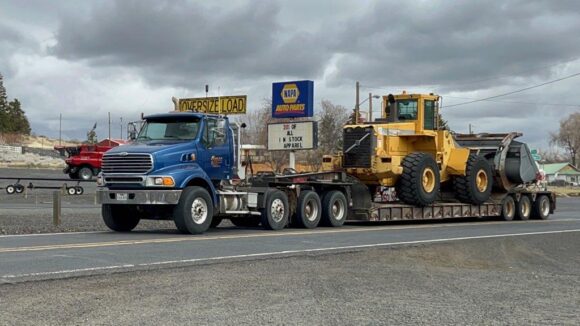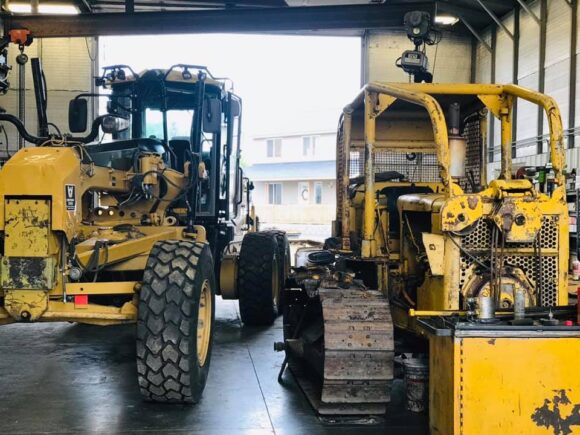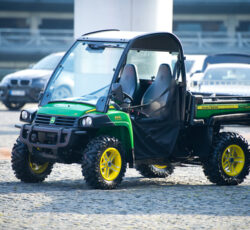Skip to content

In a rapidly evolving technological landscape, it is not uncommon for manufacturers to discontinue support for certain equipment. This can pose a challenge for businesses and individuals who rely on such equipment for their operations. However, with the right strategies and resources, it is possible to prolong the life of discontinued equipment and find alternative solutions.
1. Understanding the Challenge
When faced with discontinued equipment, the first step is to understand the challenges that may arise. In many cases, manufacturers stop providing support in terms of repairs, spare parts, and software updates. This can lead to a decrease in performance, compatibility issues, and even complete failure of the equipment. Therefore, it is essential to be proactive in finding solutions.
2. Research and Evaluate
One approach to dealing with discontinued equipment is to conduct thorough research and evaluate available options. The internet is a valuable resource for finding information on alternative solutions and replacement parts. Online forums, industry-specific communities, and user groups can provide insights from other users who have faced similar challenges. It is important to gather as much information as possible to make an informed decision.
3. Independent Repair Services
When manufacturers discontinue support, they often recommend replacing the equipment with their latest models. However, this may not always be financially viable or necessary. Independent repair services offer an alternative solution by specializing in repairing and servicing discontinued equipment. These services have skilled technicians who can diagnose and fix issues, ensuring the equipment continues to function effectively.
4. Third-Party Spare Parts
Finding replacement parts for discontinued equipment can be a daunting task. While manufacturers may stop producing and selling spare parts, third-party suppliers often fill this gap. Dedicated vendors specialize in providing compatible parts for discontinued equipment, allowing for repairs and maintenance to be carried out even after the manufacturer has stopped support. It is essential to identify reputable suppliers who offer high-quality parts and warranties.
5. Reverse Engineering
Reverse engineering involves analyzing and recreating a product or component without access to the original design specifications. This technique can be applied to discontinued equipment to develop compatible replacement parts. There are companies and professionals who specialize in reverse engineering, enabling businesses and individuals to continue using their equipment by manufacturing custom components.
6. Open-Source Communities
Many discontinued equipment users turn to open-source communities to find software alternatives and workarounds. These communities consist of passionate individuals who develop software solutions that are compatible with a wide range of devices. By engaging with open-source communities, users can access updated software, patches, and even modified firmware to extend the functionality and compatibility of discontinued equipment.
7. Upgrading and Adaptation
In some cases, upgrading or adapting the discontinued equipment may be a viable solution. By adding additional components or integrating external devices, users can enhance the capabilities and longevity of the equipment. This approach may require expert guidance or consultation from professional technicians who specialize in specific industries or equipment.
8. Networking and Collaboration
The power of networks and collaboration should not be underestimated when dealing with discontinued equipment. Engaging with peers, colleagues, and industry professionals can provide valuable insights and alternative solutions. Networking events, workshops, and conferences can help connect with individuals who have faced similar challenges and found creative ways to extend the life of their equipment.
Summary
While dealing with discontinued equipment can be challenging, it is important to remain proactive and resourceful. By understanding the challenges, thoroughly researching available options, and leveraging resources such as independent repair services, third-party spare parts, reverse engineering, open-source communities, and networking, businesses and individuals can successfully navigate obsolescence and prolong the life of their equipment. Ultimately, with the right strategies and alternatives, it is possible to continue using discontinued equipment effectively for years to come.
Need Heavy Equipment Services in Lexington, OR?
Bailey Heavy Equipment Repair, Inc. is a family-owned and -operated heavy-duty equipment repair service based in Lexington, Oregon since 1984. We specialize in providing for all of your equipment repair needs, whether it’s farm equipment, utility equipment, trucks, cylinders, or something else entirely. We offer ANSI Inspections and Dielectric testing, field repair and on-site repair, line boring services, welding, machining, hose assemblies, steel sales, and other machine products. Give us a call today for more information!

In today’s fast-paced consumer culture, the idea of fixing old equipment instead of buying new may seem counterintuitive. After all, the allure of shiny, state-of-the-art machinery is hard to resist. However, there are instances when it makes more sense to upgrade your existing equipment rather than rushing to the store for a brand-new replacement. This blog aims to shed light on when it is practical and cost-effective to opt for repairs and upgrades instead of buying new, along with providing guidelines for assessing the lifespan and potential for upgrades.
1. Assessing the Lifespan of Equipment
Before determining whether to repair or upgrade your equipment, it is crucial to assess its lifespan. Equipment that is only a few years old and has been well-maintained may still have many productive years ahead. On the other hand, if your equipment is already nearing the end of its anticipated lifespan, it may be more prudent to purchase a new one rather than invest in costly repairs. Consider factors such as the original manufacturer’s warranty, hours of usage, and any known issues that might indicate a shorter lifespan.
2. Cost-Effectiveness of Repairs
One of the primary factors that drive the decision between repair and replacement is cost-effectiveness. Compare the cost of repairing your equipment to the expense of purchasing a new one. In some cases, repairs might be significantly cheaper, particularly for certain components or minor issues. If the repairs are within a reasonable percentage of the replacement cost, it may make financial sense to proceed with repairs rather than spending a substantial sum on a brand-new purchase.
3. Compatibility with Upgrades
Another consideration when deciding between repair and upgrading is the compatibility of your equipment with potential upgrades. Upgrades can enhance the efficiency, performance, or versatility of your existing machinery, making it more competitive and cost-effective in the long run. Research the availability and compatibility of upgrade components or software for your equipment. If viable upgrades are available and can extend the usefulness and capabilities of your equipment, it may be wise to invest in repairs and upgrades instead of opting for a complete replacement.
4. Rental or Temporary Solutions
Sometimes, the urgency of acquiring new equipment is not as essential as it might initially seem. In scenarios where a critical piece of machinery breaks down, consider whether alternative temporary solutions, such as renting similar equipment, might be more cost-effective than buying new right away. Rentals can often provide a practical stop-gap solution that allows businesses to continue operations while they assess the financial implications and consider long-term repair or replacement strategies.
5. Environmental Considerations
The environmental impact of replacing equipment is a critical factor that should not be overlooked. Manufacturing new equipment consumes considerable resources and generates greenhouse gas emissions. By opting to repair and upgrade rather than buying new, you contribute to the reduction of waste and promote sustainability. It is important to weigh the environmental costs and benefits of repairing and upgrading compared to the ecological toll of frequent replacements.
Summary
The decision to fix old equipment instead of buying new is not a one-size-fits-all answer. It requires careful consideration of various factors such as the equipment’s lifespan, cost-effectiveness of repairs, compatibility with upgrades, availability of rental solutions, and environmental impact. By following these guidelines, businesses and individuals can make informed decisions that maximize both their financial resources and their commitment to sustainable practices. Remember, sometimes the allure of new equipment may tempt us, but repairing what we have can be a practical and responsible choice.
Need Heavy Equipment Services in Lexington, OR?
Bailey Heavy Equipment Repair, Inc. is a family-owned and -operated heavy-duty equipment repair service based in Lexington, Oregon since 1984. We specialize in providing for all of your equipment repair needs, whether it’s farm equipment, utility equipment, trucks, cylinders, or something else entirely. We offer ANSI Inspections and Dielectric testing, field repair and on-site repair, line boring services, welding, machining, hose assemblies, steel sales, and other machine products. Give us a call today for more information!
 The Top Features to Look For in a Utility Vehicle
The Top Features to Look For in a Utility Vehicle
Utility vehicles have become increasingly popular in recent years, and for good reason. These versatile vehicles are perfect for a variety of purposes, including transportation, hauling, towing, and more. However, with so many options on the market, it can be overwhelming to decide which features are most important when looking for your next utility vehicle. In this blog post, we’ll discuss the top features to look for in a utility vehicle to help you make an informed decision.
1. Towing Capacity
One of the most crucial features to consider when looking for a utility vehicle is towing capacity. Whether you’re hauling a trailer for work or leisure, you’ll need a vehicle with enough power to handle the weight. Make sure to check the manufacturer’s recommended towing capacity and know your needs beforehand to ensure you choose a vehicle with the necessary power.
2. Payload Capacity
In addition to towing capacity, payload capacity is also important. Payload capacity refers to the amount of weight a vehicle can carry in the cargo area, such as building materials, tools, or other heavy items. Be aware that exceeding the payload capacity can cause damage to the vehicle, so it’s essential to choose a vehicle with a sufficient payload capacity to meet your needs.
3. Four-Wheel Drive
If you plan on using your utility vehicle for off-roading, camping, or other outdoor activities, four-wheel drive is critical. Four-wheel drive helps the vehicle to navigate difficult terrain, including snow and mud. Even if you don’t plan on off-roading, four-wheel drive can still be beneficial for driving on slick roads, especially during inclement weather.
4. Ground Clearance
Another important feature to consider for off-road driving is ground clearance. This is the space between the ground and the lowest point of the vehicle, such as the frame or differential. A utility vehicle with higher ground clearance can handle rough terrain better than one with lower clearance, making it a must-have feature for serious off-road activities.
5. Fuel Efficiency
Utility vehicles are notorious for their poor fuel economy, so if you plan on using your vehicle frequently, fuel efficiency should be a top concern. Look for a vehicle that offers better gas mileage or a hybrid option. While the initial cost may be higher, the fuel savings over time could make it worth the investment.
6. Seating Capacity
While not as critical as some of the other features on this list, seating capacity is still an important consideration when choosing a utility vehicle. If you frequently transport large groups of people, you’ll want a vehicle with more seating capacity. However, if you primarily use your vehicle for work, a smaller vehicle may be more suitable.
7. Cargo Space
One of the primary purposes of a utility vehicle is to carry cargo, so cargo space is a critical feature to consider. Look for a vehicle with enough space to accommodate your needs, whether you’re hauling supplies for a construction project or camping gear for a weekend getaway. Some vehicles, such as pickup trucks, offer more cargo space than others, so keep that in mind when deciding which vehicle to choose.
8. Technology Features
Technology has come a long way in recent years, and many newer utility vehicles offer a variety of features that can make your life easier. For example, some vehicles include backup cameras, blind-spot monitoring, and even smartphone integration. These features can improve safety and driving experience, making them a worthy investment if they fit your budget.
9. Comfort Features
Finally, don’t overlook the importance of comfort features when choosing a utility vehicle. If you spend a lot of time in your vehicle, you’ll want features that make the drive more comfortable, such as air conditioning, adjustable seats, and a good sound system. While these features may not be critical, they can make a big difference in the overall driving experience.
Final Thoughts
In conclusion, choosing a utility vehicle requires careful consideration of the features that matter most for your needs. Whether you need towing or hauling capacity, off-road capability, or fuel efficiency, there is a vehicle out there to meet your needs. By taking the time to research various options and prioritize your needs, you can find a utility vehicle that meets all your requirements and makes your life easier.
Owning a utility vehicle is a great experience. If you don’t have one yet and are considering purchasing one, you can use this guide to learn about the benefits. Utility vehicles (UTVs) are a good choice for those who enjoy riding through the rocks and mud outdoors. Read on to learn about some of the benefits of owning a UTV.
What Are the Benefits of Owning a Utility Vehicle?
Here are some utility vehicle benefits you should know before you make that big purchase.
UTVs are versatile and can be used for various outdoor adventures. They are available in different sizes. You can find them available in two-seaters for those who just plan on riding solo. You can find them available in six seats for bigger family outings.
UTVs can handle different types of terrain, such as gravel, dirt, sand, mud, and rocks. It is easy for a regular 4×4 truck to get stuck in these things, including deep mud. But, with UTVs, not so much. You can easily drive right through them with no problems.
UTVs are exceptionally narrower than your average passenger vehicle. This allows them to fit into narrow spots. UTVs come in handy when passenger cars are just not able to perform.
If you and your family enjoy camping, your UTV will really come in handy on various trips. You can simply tow your UTV right on the back of your car or truck. When you arrive at your destination, simply park your vehicle and hop on your UTV. You can take your UTV out on different trails and enjoy all that nature has to offer.
UTVs also offer higher speeds for traveling through the mud. If you enjoy hunting, bring some of your friends along for the ride. UTVs are perfect for the entire family.
Another benefit of owning a UTV is that it offers a plethora of safety features. They are equipped with windscreens, seatbelts, and wide-set wheels to help with firmness.
UTVs also feature many compartments for storing your belongings, including equipment, tools, and hauling gear. UTVs can also be utilized on construction sites and for search and rescue purposes. Many sports teams even utilize them to transport equipment and players from one location to the next.
No matter why you choose to be outdoors, there is probably always a reason to bring your UTV in for the fun. They are easily accessible and suitable for any occasion.
Winterizing commercial vehicle is as important as any other vehicle. The harsh winter elements can wreak havoc on any vehicle and affect performance. It can also lead to extensive damage that can be costly to repair. Read on to learn about different ways you can winterize your commercial vehicle this season.
Tips for Winterizing Your Commercial Vehicle
Here are several utility vehicle winterization tips you can implement before winter approaches.
Check Fluid Levels in Vehicle
Cold weather really affects the fluid levels in your vehicle. It is vital that you check your vehicle’s antifreeze, engine oil, brake, power, and transmission fluids. Ensure that they are at their required levels and clean as well. If possible, change your engine oil prior to the winter to help tackle the oncoming winter weather.
Keeps Fuel Lines From Becoming Frozen
The last thing you’d want to deal with is frozen fuel lines in your commercial vehicle. The best way to keep this from happening is to keep half to a full tank of gas in your vehicle during the winter. You should also have your fuel filter inspected just to make sure that it is in good working condition.
Don’t Forget About Fuel Injectors
Having clean fuel injectors can help your commercial vehicle run smoothly. It can reduce rough start-ups, and keep your engine power running nicely. Fuel injectors work like antifreeze, which means they can eliminate water from the fuel system and keep your lines from freezing during the winter months.
Inspect the Battery
Also, remember to check the battery in your commercial vehicle. Cold weather can reduce the power of the battery. The best way to prevent battery issues during the winter is by having them inspected. If you have a battery that is more than three years old, you should probably have it replaced. The battery should be correctly connected to the terminal and cables.
Check Your Tires
You really will rely on your tires a lot more during the winter months due to the unpredictable snow and ice. This can make driving on roadways dangerous. Cold weather can also reduce your tire pressure, so be sure to check the PSI in your tires every several days. Make sure that you pay attention to the tire treads and, if possible, install snow tires or winter chains.
Warm Up Vehicle
Commercial vehicles take diesel fuel, which makes it much more difficult to start during cold weather. If you are located in an area that tends to get frigid temperatures in the winter, you should consider having an electric block heater installed. This will help your engine stay warm even when it isn’t running. They also enable your vehicle to start up faster, no matter how cold it is.
Put an Emergency Kit Together
Always keep an emergency kit in your vehicle. It is possible you may become stranded in the snow. To make sure you are prepared, your emergency kit should include blankets, gloves, hats, flashlights, batteries, a first aid kit, a snow shovel, tire chains, a radio, a cell phone charger, bottled water, snow boots, extra fuels, and road flares.



 The Top Features to Look For in a Utility Vehicle
The Top Features to Look For in a Utility Vehicle